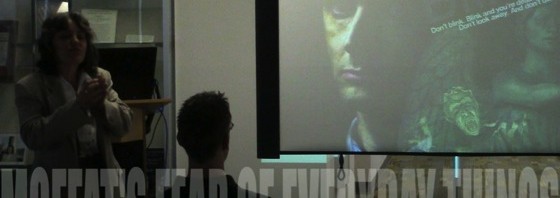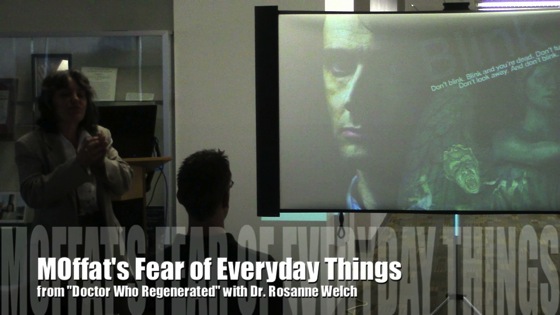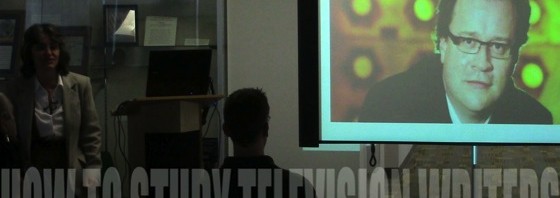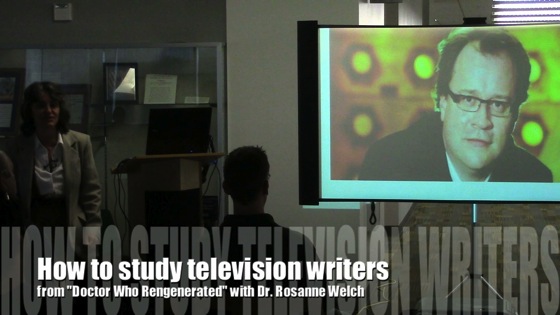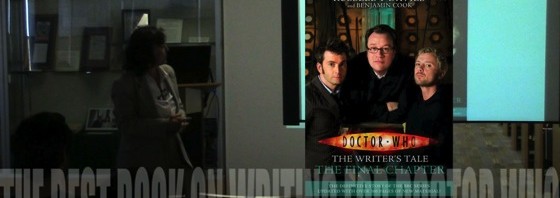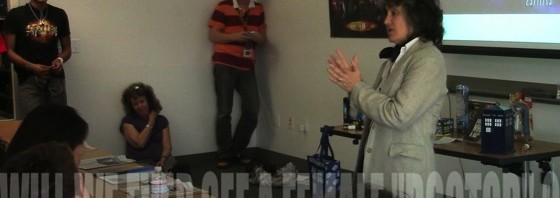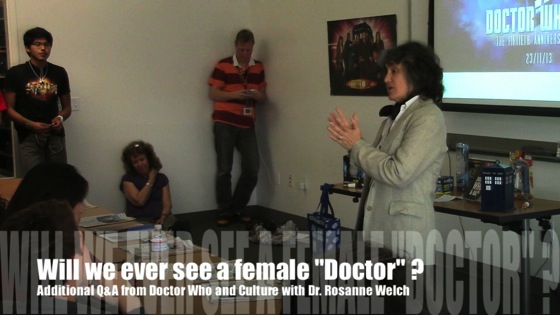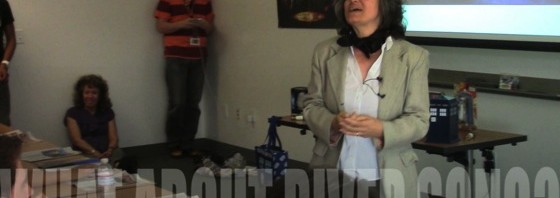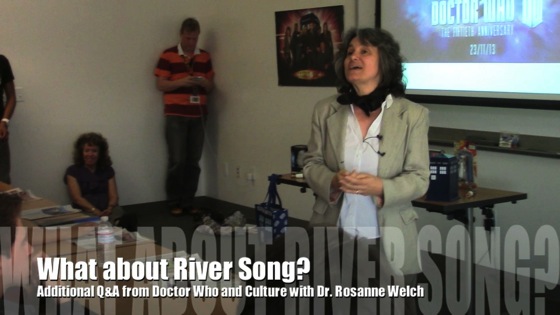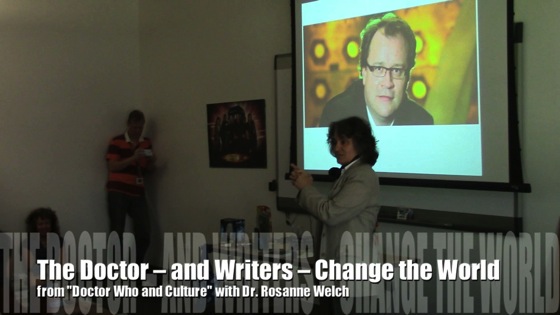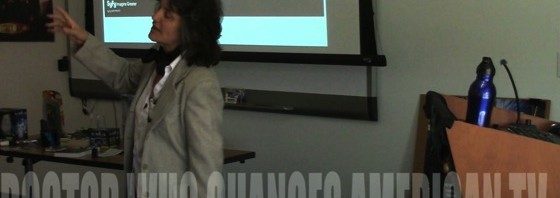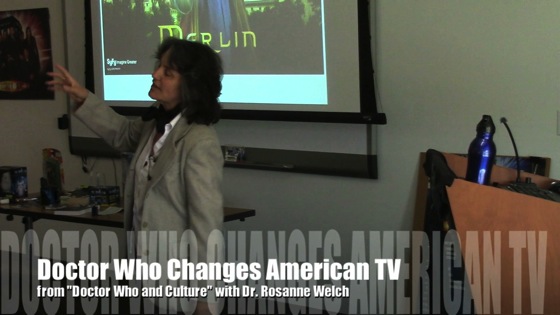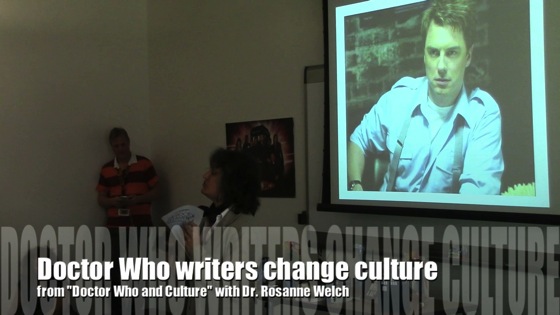A short clip from the longer presentation, “Doctor Who Regenerated”
Dr. Rosanne Welch, Cal Poly Pomona Faculty from the Department of Interdisciplinary General Education is back by popular demand with a new lecture on Doctor Who and Television!
This time, the Doctor will focus on a deeper look of the themes of the writers behind “Doctor Who.” Above and beyond race and gender, they include social justice and the power of childhood.
Subscribe to Dr. Welch’s YouTube Channel
Transcript:
What’s interesting to me is Steven we most know from Blink, which is an episode he created won his first BAFTA for and it’s quite the scary thing. What Steven likes to do, if you think about recurring themes, is Steven likes to find the fearful things in everyday life. He doesn’t want to invent cheesy fish monsters. He’s not worried about Godzilla — who I hope isn’t so bad in this current creation, but we can’t be sure. We can’t say anything until we see it. He wants to invent fear in everyday life. So, this was a perfect example of it, because, of course, what’s the rule of Blink? Don’t Blink. Blink and you die! Oh my god, how do you not blink. so, that’s right away makes you crazy. That tension and that really makes you scared of something so normal. It’s fascinating. So, Steven is quite and interesting writer when it comes to that.
“Natalie Lopez at the CalPoly University Library invited me to do a presentation for National Libraries Week on Doctor Who and Culture so that’s why a group of Whovians from both CalPoly and CSUF gathered in the Special Events room on April 16th. It was wonderful to look out over a sea of t-shirts and other Doctor paraphernalia present among the crowd as I pontificated about what makes Who great – mostly giving me a chance to present a case for the fact that writers make Doctor Who and therefore writers make culture.”
